2025 ACM Awards
We’re beyond thrilled to celebrate our incredible MAX artist partners who’ve secured nominations for the 2025 Academy of Country Music Awards—our...
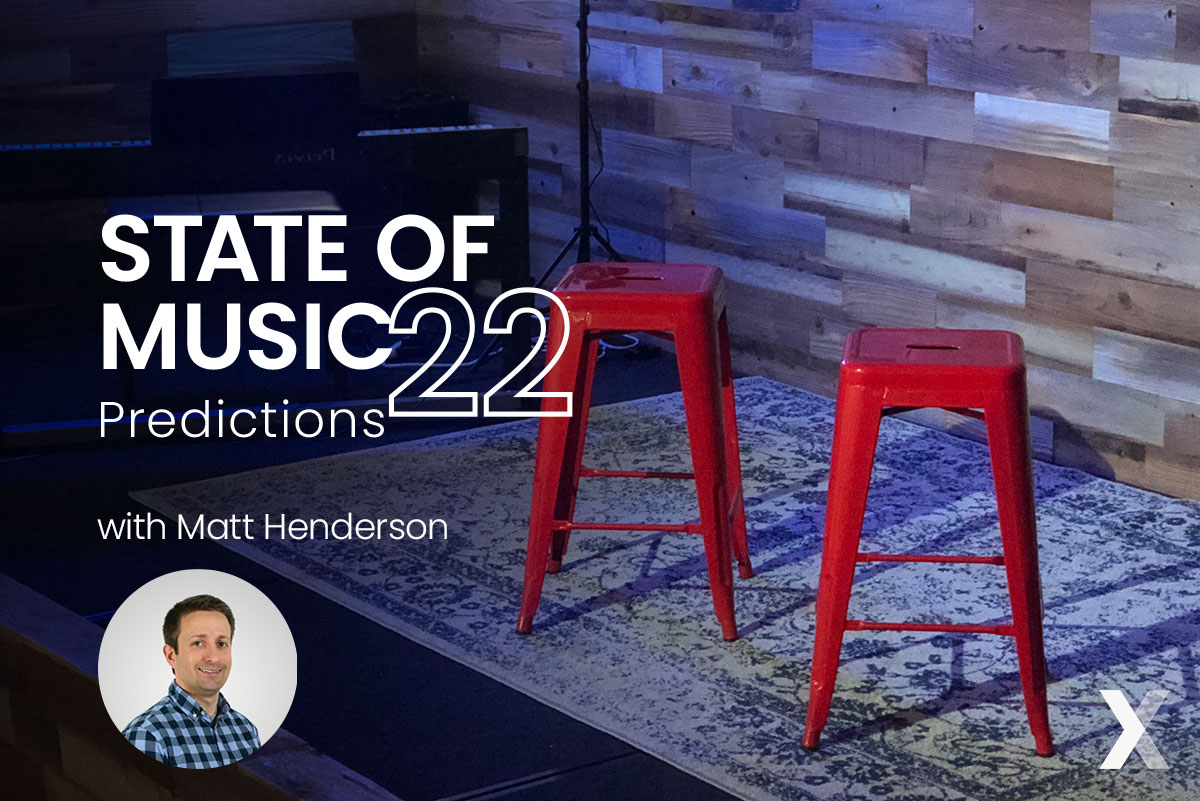
For this week’s installment of our State of Music series, we asked Matt Henderson, SVP, Business Development at MAX, to share his predictions for 2022. Matt talks about data privacy, social commerce, and interactive elements at live music shows.
 Matt Henderson
Matt Henderson
2023 UPDATE: A look back on 2022 with Matt Henderson
"Retail media continued to be an important topic in 2022, with a 20% increase in ad spend over 2021. First party data continued to be a priority for marketers, although some experienced challenges in collecting and using the data.
"I haven't seen any data around how consumers felt this year about TikTok and data privacy, but there was renewed concern after it was revealed that US TikTok user data was repeatedly shared with China, which may in part have led to more discussion about banning the app (contrary to what I predicted). Some states have banned TikTok from government devices and lawmakers have discussed banning it entirely. Time spent with media was fairly in line with my expectation, with an overall decrease vs. last year due to a decrease in time spent with TV.
"Live experiences came back in a big way in 2022. In the first half of the year, Live Nation sold more tickets than its full year 2019 results. That said, touring costs and complexity increased and some well-known acts chose not to continue touring as a result. I'm not aware of any data on hybrid experiences vs. traditional live concerts–anecdotally, however, I've seen more and more of this."
Are there any predictions about music/marketing/social/tech that have been on your mind going into 2022?
"We’ve seen more focus on data privacy, including congress introducing laws that restrict targeting, and platforms are changing their practices in response to the threat of regulation. As privacy laws and practices become stricter, platforms will seek to avoid regulation through self-restriction and start to rein in targeting options (for example, Facebook has removed a number of targeting options lately).
"We also see that consumers are more concerned about privacy and are becoming more wary about how their data is collected and used. The biggest factor that will shape marketing/tech/social, even more than new legislation, is changing consumer behavior and expectations around data privacy and transparency.
"All of this leaves brands stuck in the middle, trying to find new ways to reach their targets. Brands will continue to work on building direct relationships with consumers, especially brands who haven’t had a direct relationship in the past (like CPGs)."
What will that look like in 2022? How does this affect marketing strategies?
"Brands will need to pay more attention to lower funnel relationship building than they have in the past, including social commerce and live stream shopping. Retail marketing will grow. Facebook and Google are already threatened by Amazon, as Amazon is the giant in the retail market space and can serve ads to consumers in their own marketplace. Other retailers are adopting similar tactics, launching their own media networks where advertisers can pay to promote their products."
You mentioned TikTok - can you talk about the perception there seems to be of TikTok not being as invasive (as opposed to, say, Facebook)?
"A lot of the recent focus has been on Facebook’s privacy practices, and TikTok has largely escaped scrutiny (so far), but as it grows in importance, the concern about TikTok’s privacy practices will grow. There’s also the concern that Tiktok is owned by a Chinese company and we don’t really know what’s being done with our data. As TikTok gains audience share, there will be more attention paid to their privacy practices."
"When we talk about the privacy preferences of TikTok users, we’re talking about young users who are more cautious about what they’re willing to accept from platforms and advertisers. These younger users will likely drive the scrutiny of TikTok’s privacy practices. TikTok recently updated its content and moderation policies, which is a sign that their users are concerned about harmful content.
"We’ll also see more conversations about whether social media networks are operating as publishers or platforms. There are competing concerns about the distribution of misinformation vs. objections to censorship, and that’s a whole other challenge. Who is responsible for the spread of misinformation? What is their responsibility as a platform and are they also a publisher? For those with exclusive content, does exclusivity confer responsibility? Again, the conversations around all of this will be driven by consumer preferences."
Do you have any thoughts on TikTok’s long-term staying power?
"Its growth will definitely be influenced by how it handles privacy. I doubt we’ll come back to an era where we’re considering banning TikTok, but it will be affected by consumer shifts in preferences. As far as staying power as a content provider, that depends. Will our appetite for short form content keep growing? It’ll be interesting to see if it continues to grow as more people return to “normal” life and spend less time at home. Overall content consumption grew with the pandemic (linear TV, short form, streaming, etc.). Will the shift in preferences to short form stay when people are not consuming as much content? When they have other things filling up their time, what will be cut? My prediction is that short form content won’t be the thing that gets cut. As to whether TikTok remains a primary platform for short-form content, that will hinge on consumer preferences and TikTok’s practices."
Changing gears for a minute, do you have any thoughts about how blockchain could give consumers more control over their own data or even provide ways to monetize personal information? Does any of this push us further in that direction?
"I’m not a blockchain expert, but data privacy is about ownership and central authority. Facebook owns all of the data they collect about you. With blockchain, it’s decentralized, so the data exists in multiple places and is authenticated through either proof of work or proof of stake. I’d say that the blockchain might have an influence on consumer behaviors, but it won’t solve social media privacy concerns."
Going back to social commerce, live stream shopping, and retail marketing, what businesses should shift more attention to these areas?
"In general for all three, the ad experience/outcome for these is more like what you would see in an online shopping cart (CPG, fashion, beauty, electronics, etc.) and less like, say, auto sales."
For the industries who can’t use social commerce, live stream shopping, and retail marketing, will they have more difficulties because of changes in privacy practices? Will they need to turn to alternate strategies?
"Marketers should be looking to disintermediate their relationships with consumers (that are largely happening through social media right now), build direct relationships with people, and own that data. First party (and zero party) data means that brands are less restricted by limitations on what kind of targeting and outreach they can do."
Do you see what MAX does as a solution for that?
"MAX allows brands to reach consumers in authentic and intriguing ways and then to capture and own that data. Brands will want records of consumers who they know are their target buyers, but will continue to look to influence brand awareness and favorability, which means work on both top and bottom funnel activity."
Would you say, then, that lead generation should be the main focus of more campaigns?
"Lead gen is important, even if it’s not part of every campaign. Top and bottom funnel are both important for building brand affinity. There will still be broad campaigns with the goal of increasing brand recognition and awareness that don’t include lead gen components, but the data gathered during lead generation can help shape those campaigns."
What do you think live music will look like in 2022?
"We will all be holograms, gathered around to listen to music from real people… or maybe it’ll be the other way around…"
"In seriousness though, we expected to return to live music in a big way last year, but then had a resurgence of Covid (and new variants). This year, artists are interested in getting back on the road, fans are interested in going to shows, and I hope to see a resurgence of live music as the threat of covid wanes. I’m hopeful for more in-person experiences."
What kinds of experiences will people expect out of live music events in 2022?
"Hybrid experiences will increase in importance. Consumers will still want the attributes that were unique to livestreaming that hadn’t been implemented pre-covid. There will be an audience for the interactive elements at live shows that we’ve come to expect from digital experiences, including direct fan interaction through digital means, registering for in-person meet & greets using smartphones, buying physical goods exclusive to the show through digital platforms, etc."
"For a lot of people who have been isolated, they’re ready for in-person experiences, but again, changes in consumer preferences mean that they want the benefits they came to expect from virtual shows. Hybrid experiences that allow people to interact virtually while at a live show haven’t really existed before, but when artists can bring that to a live environment, it’ll be that much more intriguing and make the experience that much better for fans."
"There’s also an opportunity to include exclusive experiences in places where artists’ fans live, but not in large enough numbers to hit their market. Basically, people are ready for live music, but there are a lot of benefits to virtual that artists should be looking to incorporate into their shows and into their overall fan experiences."
Next week, I’ll be offering my own perspective and predictions for the State of Music in 2022, and I look forward to talking to myself! And as always, if you have any questions you’d like to see answered by any of our featured experts, comment below or email us at marketing@musicaudience.net.
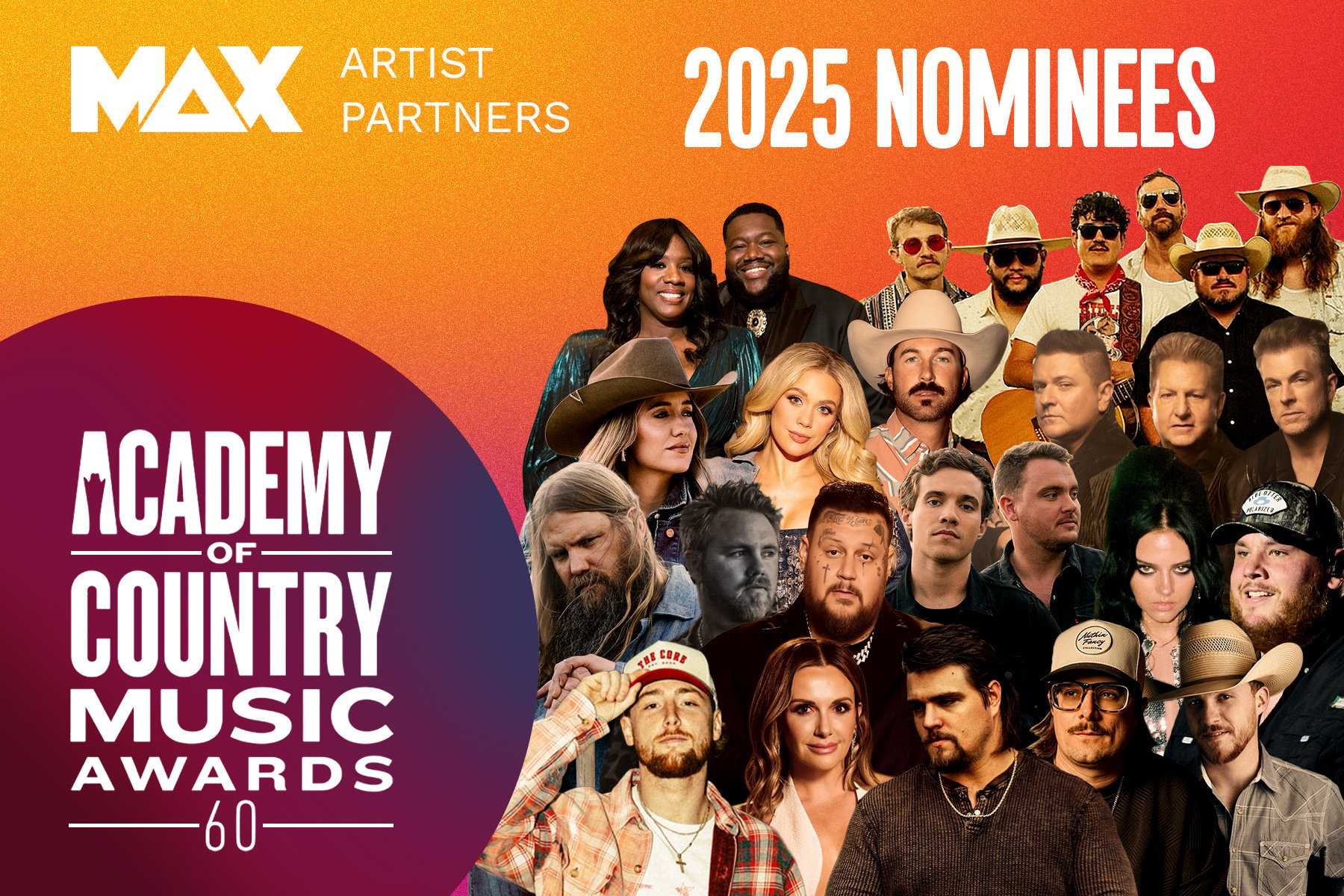
We’re beyond thrilled to celebrate our incredible MAX artist partners who’ve secured nominations for the 2025 Academy of Country Music Awards—our...
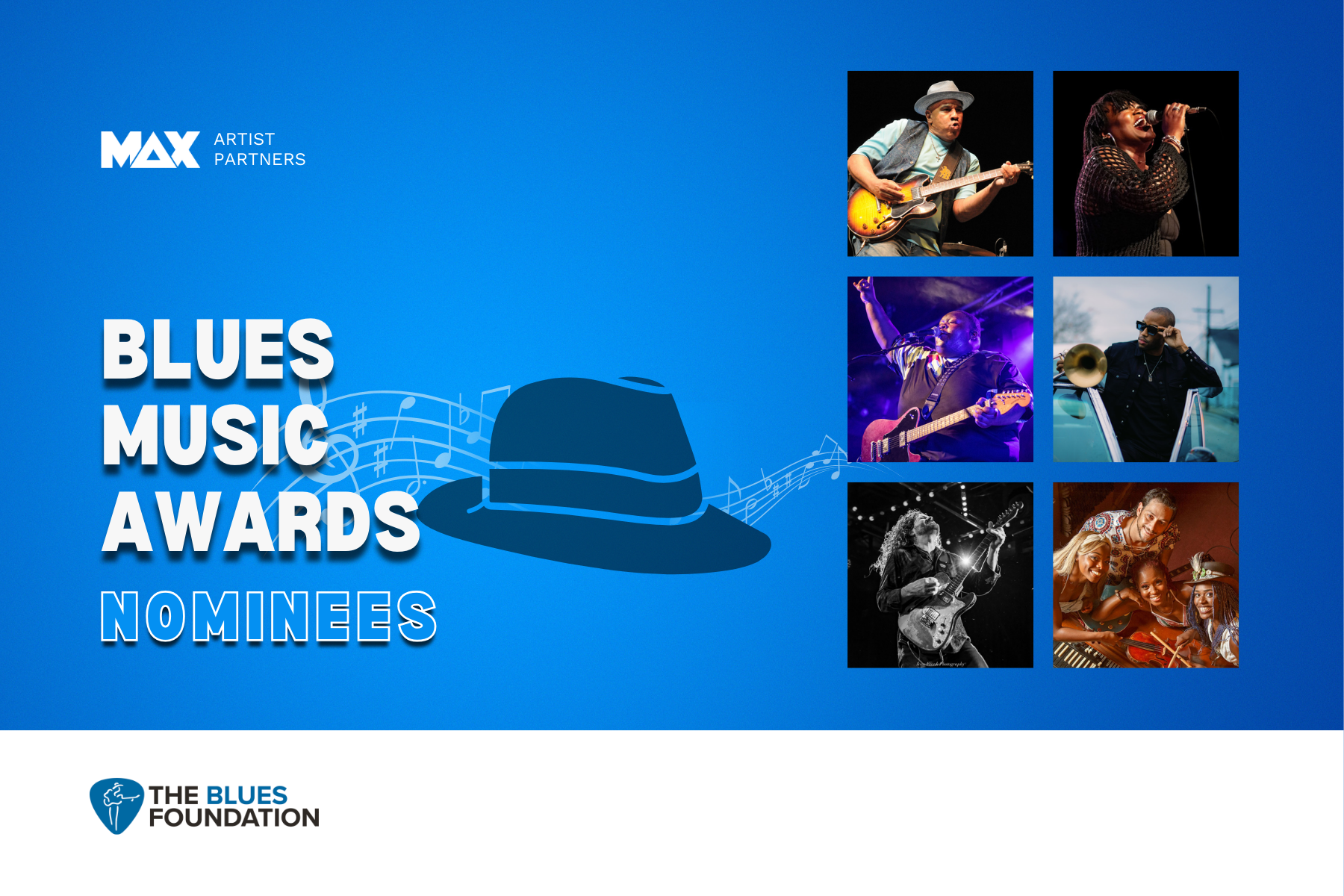
We’re fired up to celebrate our incredible artist partners who are nominated for the 2025 Blues Music Awards! 🎶🏆Blues music may be timeless, but...

It’s a common question: what drives the cost of an artist partnership up (or down)? I mean, an artist’s fee can range from four to seven figures…and...
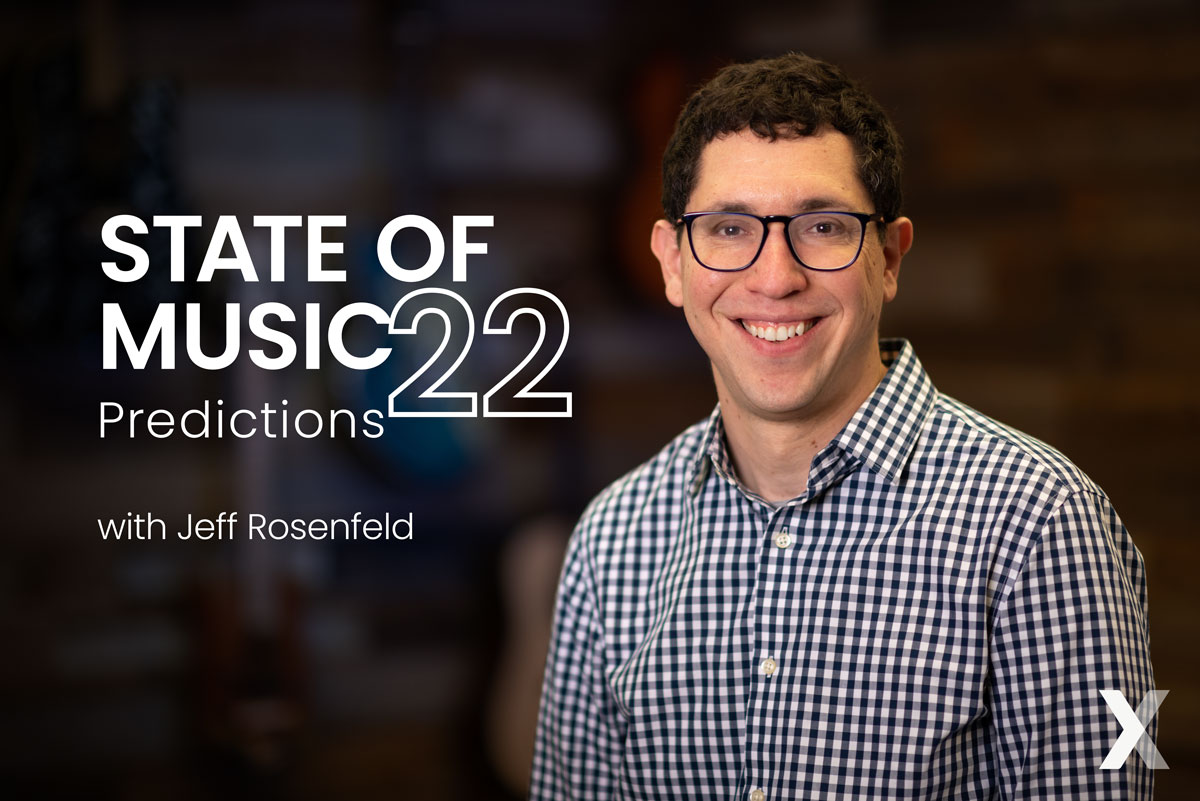
This week’s predictions come from our Sr. VP of Product and Technology, Jeff Rosenfeld. On top of being an expert in his field, Jeff is an artist...

We love a good prediction article. We’ve been reading a ton of really great editorials, blogs, infographics, whitepapers, and substacks about what...
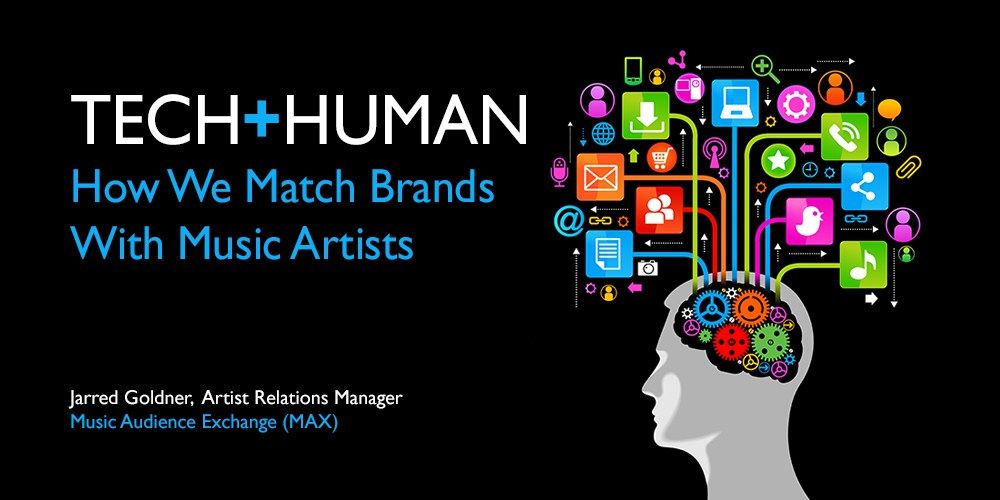
As Artist Relations Manager at Music Audience Exchange (MAX), my job involves the process of selecting artists for brand/artist partnerships – which...